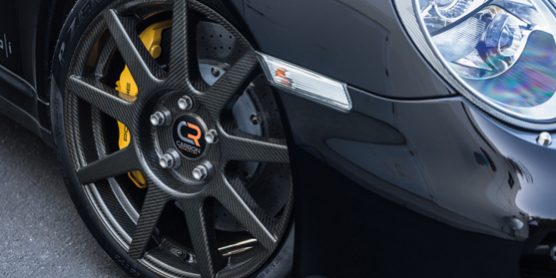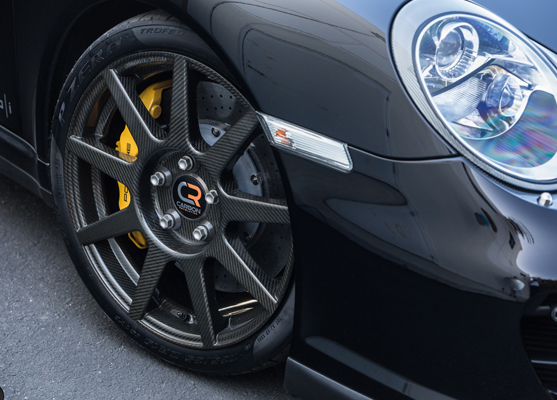$15m Manufacturing R&D Project Signals the Future for Australia’s Automotive Manufacturing Industry
Carbon Revolution and Deakin University collaborate to deliver innovative and advanced manufacturing technologies for composite wheel technology for the global automotive industry.
Today’s announcement of a new $15m manufacturing research and development project, facilitated by the Innovative Manufacturing CRC (IMCRC), signals the future for the Australian automotive manufacturing industry.
The $15m project will see Australian-based automotive technology company, Carbon Revolution, collaborate with researchers from Deakin University in a unique partnership to develop innovative and advanced manufacturing technologies.
According to Carbon Revolution’s Chief Executive Officer, Jake Dingle, this research project will support a significant increase in terms of industrial scale and output of its products, which are exported to markets around the globe.
“The research outputs from this project are closely aligned with Carbon Revolution’s future development plans to invest in developing new innovative manufacturing technologies and material science, and we’re thrilled to be able to work with Deakin University on this project.” Mr Dingle said.
Head of the IMCRC, David Chuter, said that this research project was a great example of the potential benefits Australian manufacturers could enjoy if a collaborative approach to innovation, between industry and research organisations, was adopted.
“The IMCRC’s focus is on catalysing tangible, commercial outcomes for Australian manufacturers, by bringing together manufacturing businesses and research organisations, to support innovations that will ensure the Australian manufacturing industry can meet the challenges and opportunities presented by today’s global economy,” Mr Chuter said.
“IMCRC’s $3m contribution to this three-year research project is catalysing both investment in manufacturing technologies, as well as facilitating a dedicated Carbon Revolution and Deakin co-located Innovation Space which will be created within the new Carbon Revolution facilities, scheduled for completion later this year,” said Mr Chuter.
Mr Dingle said that he was also optimistic about the technological impact, and anticipated commercial outcomes, of this significant R&D collaboration.
“This project has the potential to take our technology more rapidly to the next level, which will further strengthen our global leadership and competitiveness in the area of composite wheels,” Mr Dingle said.
“We are already recognised as the global leader in this space thanks to our design and engineering capabilities, and the focus for this next critical phase is to fully industrialise and scale up our manufacturing processes and operations.”
The research will take place at a dedicated collaborative Innovation Space and R&D Lab, on site at Carbon Revolution located within the Deakin Waurn Ponds Campus, and will bring together some of the best minds in carbon fibre product development, materials science and manufacturing innovations.
Professor of Composite Materials at Deakin’s Institute for Frontier Materials, Russell Varley, is part of the steering committee leading the $15M dollar research project.
“Deakin is excited to partner with Carbon Revolution to make composite materials that are more processable, more durable, stronger and tougher, at lower cost,” Professor Varley said.
“The technology developed in this project will ensure Deakin and Carbon Revolution remain at the leading edge of global composite materials research, particularly in relation to lightweight structures, raw materials and fabrication technologies.”
The research project intends to catalyse change across a range of key commercialisation and industrialisation drivers, including:
- Research into raw material inputs, such as resin system development and fibre development
- Composite system elements and advanced process developments
- Manufacturing process automation and industrialisation
- Research into the integration of intelligent manufacturing and Industry 4.0
- Establishment of a new Innovation Space and R&D Lab

